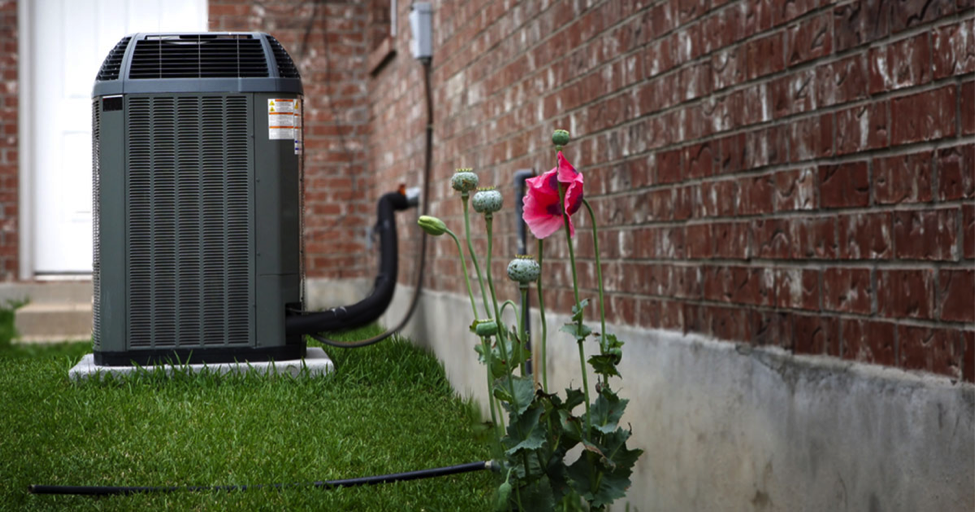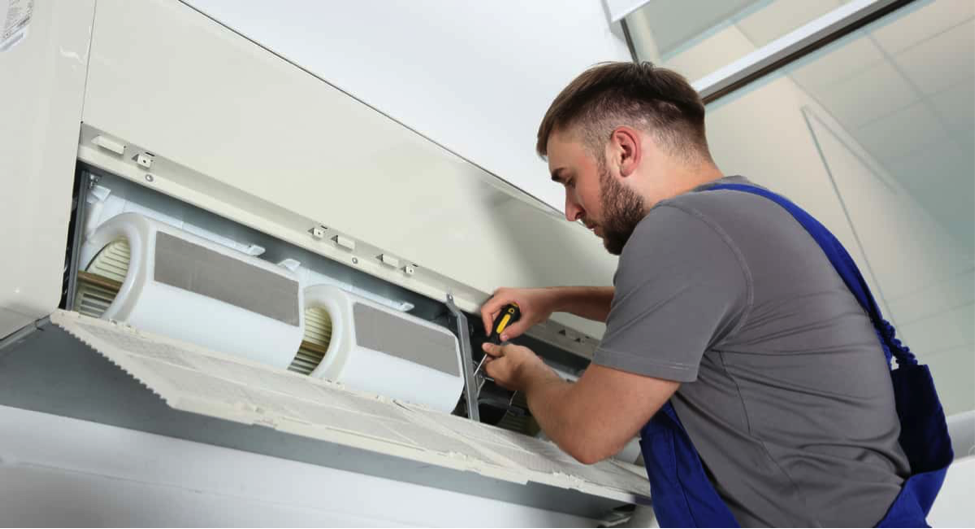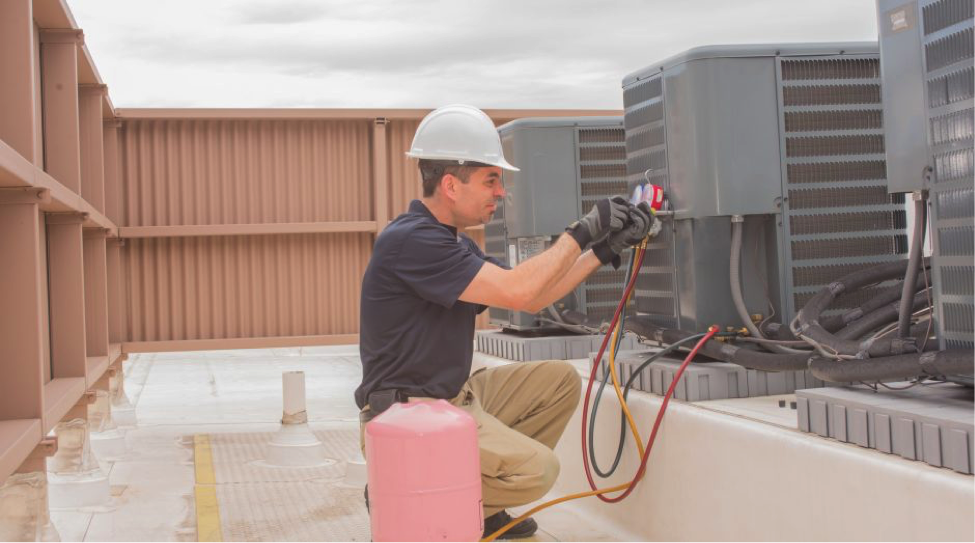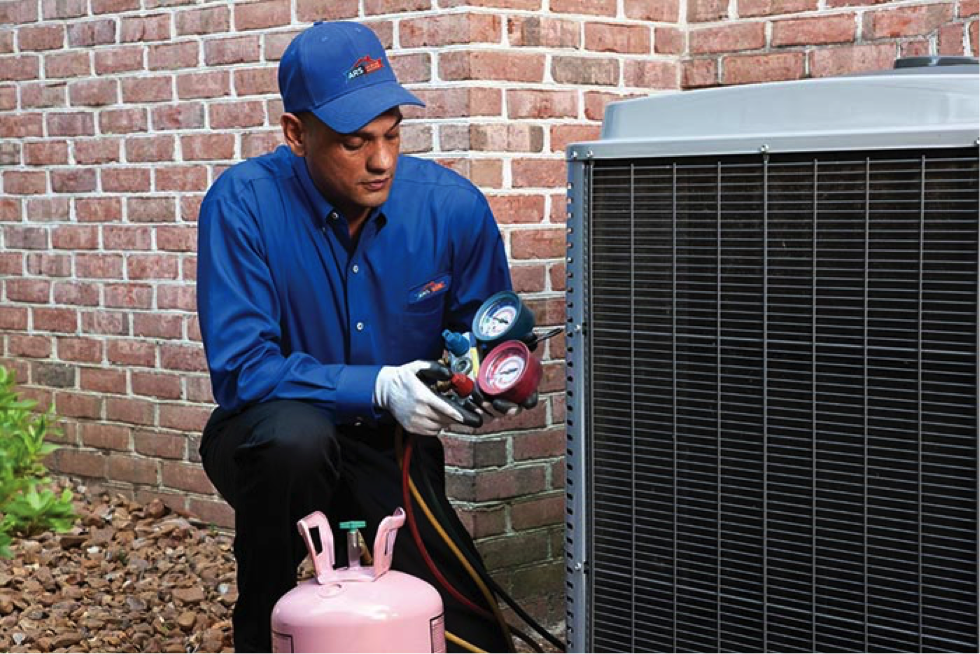Remember the maintain your HVAC system to keep it in top shape! Here’s how!
 Photos By: Unsplash
Photos By: Unsplash
HVAC (heating, ventilation, and air conditioning) systems are some of the most important that your home can have. Not only do they form the core of your home’s overall environment, but they can be invaluable for dealing with the unexpected, like heat waves or sudden cold spells.
Like any part of your home, these systems need to be maintained and protected, especially if you’re using them constantly. It only takes one flaw for an entire system to fail in some major way, and even a small amount of damage can dramatically reduce the system’s efficiency and increase energy costs.
No matter what kind of HVAC systems you have in your home, you need to keep them functioning properly. Whether you’re an HVAC expert or just a typical homeowner, you’ll want to know how you can maintain them – and when specialists might need to be involved.
Here’s a quick but in-depth breakdown of why you should be maintaining your home’s HVAC systems, whether that’s changing the filters on a ventilation system or recharging the refrigerant in your air conditioning unit.
What is HVAC?
HVAC is an umbrella term for all heating, ventilation, and air conditioning units. It can be used to describe either a combined system that contains all three, or individual systems that just happen to be in the same home.
HVAC isn’t any particular kind of system, and it can be different for each home. However, their overall goal and the main purpose is to keep a home, property, or building within optimal temperatures and air quality. As a major part of building management, they’re essential to keeping a space comfortable.

Why are Repairs Important?
Aside from the obvious reasons (making your system work properly), maintaining your HVAC systems can help make them more efficient. The better your system is operating, the less you’re spending on power, which can be a lifesaver if you’re already on quite a tight budget.
Maintaining your home’s HVAC isn’t just about making it work properly. A large part is also optimizing the flaws out of the system, removing potential problems that could impact how much energy the system is using to keep your house comfortable.
General Repair Benefits
Sometimes the best repairs are the more generalized ones, the kind that can be done on nearly any part of the HVAC system. Even if these aren’t specialized repairs, they can still be incredibly important to help keep the system working well.
In many cases, any kind of repair or maintenance work will confer some benefits, usually by making the system more efficient. This can cut down on power usage, but also has other upsides that can be important if you rely on the system every single day.
Lower Bills
A badly-maintained HVAC system needs to use more energy to operate, and that means higher overall bills. The less efficient your system is, the more you’re spending to make it run at its normal level, which can gradually become more and more expensive as the system wears down.
On the other hand, keeping your system maintained properly ensures that you aren’t spending quite as much, cutting down on how much you pay to make the system work. This reduces your overall bills and helps you slash your heating or ventilation expenses across the board.

Cheaper Repairs
If you leave your HVAC system alone and don’t maintain it until it breaks, then there will be a lot of issues for an engineer or technician to fix. Even something small, like a funnel clogged with dust, can become an expensive problem to rectify if the rest of the system has been able to break down as well.
Maintaining your HVAC system regularly can make a huge difference here. Not only can it mean that your repairs cost much less, but it also has the added benefit of reducing the chances of further damage to the system.
Fewer ‘Death Spirals’
Serious problems with an HVAC system can sometimes lead to a ‘death spiral’, where one major fault increases the chance of another happening. For example, a damaged drive belt can often lead to the rest of the system operating incorrectly, which might damage other components as well.
If an HVAC system is already worn down, then other issues can start to happen faster as the problems all compound on one another. If you clear up smaller issues quickly, then they’re less likely to cause other flaws or faults further down the line – faults that might be quite expensive to fix.
These aren’t always that common, but there’s still a non-zero chance of them happening. If you can rectify problems before they begin to cause other (much more serious) issues, then you can prevent them from happening almost entirely.
Longer Lifespans
If you maintain something, then it lasts longer. An HVAC system can often wear down quite quickly if you use it regularly, and having to replace the entire system after only two or three years can quickly become an expensive routine that you should aim to avoid.
By maintaining the core systems, you can extend the life of your HVAC system significantly. Not only does this cut down on the total costs of keeping your home fitted with an HVAC setup, but it can also significantly reduce how often you need to make sweeping changes to the whole system.
Improved Air Quality
There’s a very obvious reason to keep a ventilation system maintained: air quality. Not only does a good ventilation system helps remove dust and mold from the air, but it can actually combat allergies or asthma issues that certain people in your family might have.
By contrast, a poorly-maintained ventilation system could contain a source of dust or mold, meaning that the system is more likely to spread it around your home. In extreme cases, it might be blocked entirely, leaving only stagnant air that can quickly become uncomfortable to breathe.
General Safety
One of the most important reasons to repair your HVAC system involves the physical safety of you and your family. While the other benefits are all useful, there’s one major thing to consider when dealing with a badly-maintained HVAC setup – highly increased safety risks.
A well-maintained HVAC system is usually going to operate just fine, unless there are sudden and unexpected issues with the system itself. However, a badly-maintained one could end up developing serious problems that put you in direct danger, especially if multiple issues happen all at once.
For example, a short circuit could lead to a fire, and a furnace unit failure could start to spread carbon dioxide or carbon monoxide into your home. These might sound controllable, but considering that most HVAC systems are hidden away, you may not even notice until the problem is already too serious to contain.
Maintaining Your HVAC System
Even if you know the benefits that come from maintaining your HVAC system, it’s important to know what steps you can actually take to double-check its condition and efficiency. Some of these steps may involve a technician’s help, but many of them can be done by yourself if you’re confident enough to try them.
When to Plan Maintenance
Regular maintenance is best done with two factors in mind: a regular schedule, and some core details about the system itself. While you want to check on your system repeatedly over a long period of time, it also helps to consider the key facts you know about your own HVAC system.
For example, you’ll want to think about things such as the age of the system, the general condition that it’s in, the size and scope of the HVAC system, and even how often you use it. These can all have an impact on how well the system runs, so you want to factor this into the maintenance routine.
Remember that checking a system more often might actually be redundant. You don’t want to do full maintenance on a system that’s already working fine. Checking the system every three weeks would be a waste of time, since there won’t be enough time for anything to really change.
It’s also a good idea to spread out your repairs by the kind of weather that you’re having, since you’ll be using different parts of the HVAC system depending on the current temperature and weather conditions.

Warm Weather Maintenance
Warmer weather often means recharging the refrigerant in your HVAC system, improving the overall ventilation for the air conditioning system, and generally making it a better cooling option as a whole. This also means things like lubricating moving parts and checking fans to see if you have a proper airflow.
Be sure to replace any filters that might have been worn out. You’ll be using the ventilation system quite often, so it helps to reduce the amount of debris and dust that might have built up in there. Be sure to inspect the ducts themselves for anything that could cause problems, such as dirt, dust, mold, or even debris from other parts of the house.
It can be important to fix any clogged-up drain lines, since this can block the important parts of the flow and make the system much less efficient. Finding leaks and securing the HVAC cabinet properly is another step that you might overlook easily, but it can make a massive difference.
In some areas, warm weather might be comfortable but bearable. In others, it can be outright dangerous to go without air conditioning for too long – in this case, you want to keep the system maintained and repaired before you suffer and heatwaves, especially if you live in a more remote area.
Cold Weather Maintenance
Cold weather is less focused on the cooling aspect and more geared towards heating, which means that the ventilation system is going to be used for different reasons. Be sure to replace filters every 30-90 days depending on the filter life, and get a technician to check for gas leaks if you use a gas furnace system.
Frayed belts and pulleys, as well as damaged electrical wiring, are all problems that have to be identified and resolved if you want the system to work properly. Like before, you should lubricate any moving parts, even if they’re only small components in the overall design.
Always clear drain lines and any standing water. Be sure to inspect the heating elements and/or heat exchangers in the system, since they can produce carbon monoxide if they’re damaged – which is inherently dangerous and can quickly cause carbon monoxide poisoning if left untouched.
If the weather is starting to get extremely cold, then you want a heating system that can keep you comfortable and protected throughout the season. This means getting all major faults repaired as soon as you can, ideally before the major chills start to arrive and the snow begins to fall.
Do You Need A Technician?
While many people would prefer to do the maintenance work all by themselves, it’s important to remember that you can’t always rely on your own skills to fix your HVAC system. Some work will simply be too dangerous, complicated, or specific to handle all by yourself without the right tools and experience.
Calling in a technician can be a very useful step, since it takes the pressure off you and ensures that you have an expert on standby. If your entire HVAC system is breaking down, then you want somebody that can reliably fix and maintain the system well.
Even something small, like an AC tune-up, can need a lot of specific tools and tricks that the average homeowner might not know. Even if you have the manual for the HVAC system in your home, you can’t guarantee that you’ll be able to fix the problem, and one mistake could cause even more damage to the whole system.
Don’t hesitate to hire a home services technician if you’re looking for somebody that you can trust. Having an experienced specialist helping with your system massively reduces the chance of unexpected issues or sudden faults, and can also result in better overall maintenance work compared to doing it all yourself.




